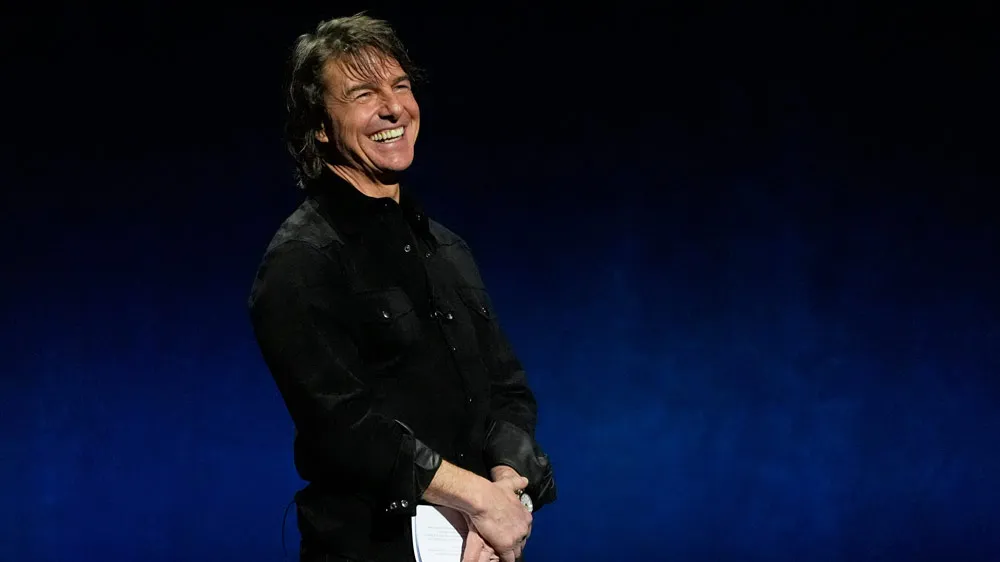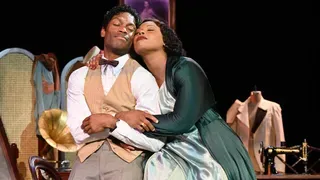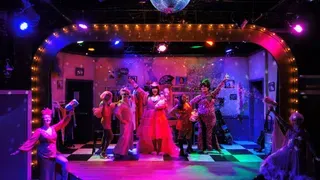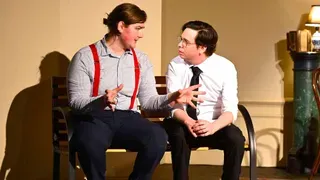August 15, 2008
Vicky Cristina Barcelona
Robert Nesti READ TIME: 4 MIN.
Woody Allen remains the most chameleonic of American directors. Take his most recent films, for example: "Match Point" was a captivating melodrama in the Hitchcock-style; "Scoop," a shaggy mess of mystery, fantasy and comedy. "Cassandra's Dream," back to aping Hitchcock, but far less successfully, alluding to the creative desert he has been in-and-out of for years. Yet with Vicky Cristina Barcelona, his sunny comedy/drama set in that Spanish city, he's back on track with a film that is different than anything before it.
It would be easy to find the film slight or be annoyed with its heavy narration (spoken by actor Christopher Evan Welch as a stand-in for Allen); yet it is a beautifully told story that explores that place where desire and security meet and inevitably fall-out. It is as if Allen is channeling Edith Wharton in his tart social observations. Gone are the glib one-liners, replaced with more naturalistic dialogue and pensive commentary on the vagaries of relationships.
The title encapsulates the three elements of the story: Vicky (Rebecca Hall) and Christina (Scarlett Johansson), a pair of American tourists, and Barcelona, the dreamily romantic city they come to for a summer. Though best friends, the two are as different as can be imagined: Vicky is careful and controlling, safe with her prospective marriage to a Wall Street-type and their home in a tony New York suburb; Christina loathes that security, instead seeks adventure without considering the cost. She finds it, actually both women do, in the person of Juan Antonio (Javier Bardem), a smooth-talking artist who, upon meeting the Americans for the first time, suggests they all sleep together. A turn of events bring Vicky and Antonio together, and she succumbs to his charms in a public park; but it is Christina who takes up with him and his somewhat unhinged ex-wife Maria Elena (Penelope Cruz), forming an erotic menage-a-trois that recalls something out of Francois Truffaut or Eric Rohmer.
Vicky, though, cannot get Juan Antonio out of her head, despite her impending marriage to Doug (Chris Messina), a most conventional, yet attentive corporate lawyer. After all, Juan Antonio is an artist with insinuating romantic appeal, and as played by Bardem, exudes a sensuality that is easy to fall for. The actor has never been sexier in a movie; so it is easy to find the audience finding him more appealing than the narrow-minded Doug and understanding how her indiscretion has left Vicky open to doubting her decisions about her future. Allen textures Vicky's narrative with Christina's, dovetailing between the two women through the use of the carefully wrought narration, which spends a good deal of time chronicling how Maria Elena finds her way back into Juan Antonio's life. The pair cannot live with each other, but cannot live without each other -- each feeds each other's creative juices, yet each is destructive. Christina forms the balm that brings them together, if only briefly; when she leaves, the two battle again.
Allen appears to be commenting on the difference between that artistic temperament and the more conventional one, represented by Doug and the American couple, played by Patricia Clarkson and Kevin Dunn, who put the girls up for the summer. (It is basically the difference between Europe and America -- has Allen either realized this from his time abroad or has he been reading Henry James?) And despite its golden look, the film possesses the sadness of unrealized dreams and talents: Vicky cannot deal with her desires and Christina runs away from her talent. During her stay with Juan Antonio her gifts as a photographer are realized, yet she runs away from it just, as you suspect, she ran away from her earlier attempt at moviemaking. She is a seeker, but of what she does not seem to know of what; while Vicky's cocksure attitude melts in one indiscretion.
How Allen resolves the various threads is comic, yet the final shots suggest ambivalence beneath the surface, as if the romantic temperament of Barcelona has stirred something in each of the women as there is a repeat, quite literally, the film's opening shots. Part of the reason it plays so well are the remarkable performances all around. Rebecca Hall, the daughter of British director Peter Hall, captures Vicky's assured character with a blunt intelligence, yet also suggests the neurotic insecurities beneath the surface. She is overweening one minute, pensive the next; and Hall moves between these facets with seamless skill. Scarlett Johansson brings a playfulness to Christina -- she is always looking for something new -- and possesses a natural sexiness that is perfect for the role. Oddly, she remains unformed as an actress, yet it works here in a more intuitive than well-thought out performance. Bardem embodies the romantic artist convincingly without turning him into the caricature; the same can be said for Cruz, whose fiery temperament is right out of Almodovar; her radiance adds luster to this little jewel of a movie.
Woody Allen has gone abroad in his past few films; but what's different here is how he combines the sensibility that informed his New York films from two decades ago with a European one -- it's not quite "Annie Hall" on the grand tour, but you get the idea. And the concept has invigorated him. He's not treading water, rather finding new places to explore. It is wonderful to see him in such fine form again.
Robert Nesti can be reached at [email protected].







